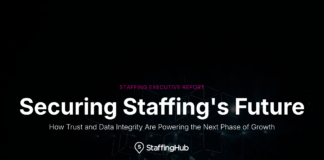
The Great Resignation looks likely to continue, according to recent data from PwC. In a survey of almost 54,000 workers across the globe, more than one-quarter (26%) said they would likely change jobs this year. That’s up from 19% last year, though still considerably lower than many of the other reports we’ve seen, especially those focusing specifically on U.S. workers.
Employees who feel overworked (44%), struggle to pay their bills every month (38%), and are members of Gen Z (35%) are mostly likely to change jobs. Financial factors are taking a toll – fewer employees this year say they have money left over at the month, and 21% now work multiple jobs. Many workers are also looking for higher pay – 42% plan to ask for a raise this year.
Financial challenges are also accompanied by difficulty meeting the challenges of the future. Half (50%) of workers who struggle to pay their bills said they are actively looking for opportunities to develop new skills, compared to 62% of those who aren’t struggling. They are also less likely to say AI will improve their productivity or create new job opportunities. Younger workers are more likely to believe that AI will have an impact on their careers than older generations.
Workers with specialized skills are much more likely to say that the skills required for their jobs will change in the near future (51% compared to 15% without specialized skills). About two-thirds say they’re confident their employers will help them develop the skills they need.
Psychological factors are also playing a role – employees who find their jobs fulfilling and feel like they can truly be themselves at work are less likely to look for a new job. They’re also looking for stability – 43% of workers who don’t believe their company will survive the next decade are likely to leave, compared to 19% of those who think their company is on a sustainable path.
According to PwC, old-fashioned recruitment and development practices are causing employers to miss out on valuable talent. For example, many workers have skills that may be overlooked because they aren’t obvious from their CVs or job histories.
Commenting on the results, Bhushan Sethi, Strategy&, Principal, PwC US, said: “With the ongoing economic uncertainty, we see a global workforce that wants more pay and more meaning from their work. Addressing these needs will be critical as leaders seek to transform their workplaces enabling business model reinvention, profitable growth and job creation. A critical part of this transformation agenda will include accessing alternative talent pools through a skills-first hiring approach, to address today’s skills and labor shortages. Evaluating and upskilling people based on what they can do in the future, not just what they have demonstrated in the past can deliver sustainable economic, business, and societal outcomes.”





